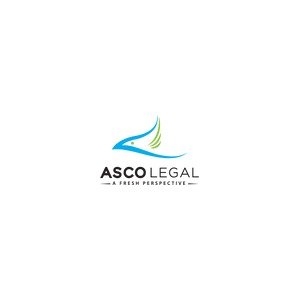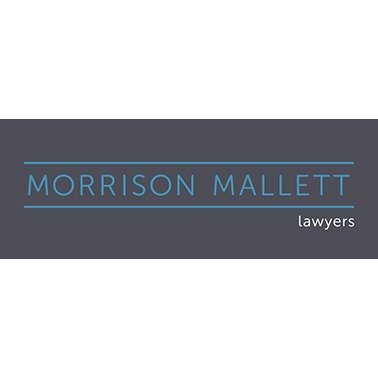Best Restructuring & Insolvency Lawyers in Auckland
Share your needs with us, get contacted by law firms.
Free. Takes 2 min.
List of the best lawyers in Auckland, New Zealand
About Restructuring & Insolvency Law in Auckland, New Zealand
Restructuring and insolvency law in Auckland, New Zealand, governs how financially distressed businesses and individuals manage debts and obligations. The field includes processes such as voluntary administration, receivership, liquidation, and schemes of arrangement. The legal framework aims to balance the interests of creditors, debtors, employees, and other stakeholders while ensuring fair and transparent proceedings. Auckland, as New Zealand's largest city and commercial hub, sees a wide variety of insolvency and restructuring activities across diverse industries. The laws are primarily derived from the Companies Act 1993, Insolvency Act 2006, and related regulations.
Why You May Need a Lawyer
Legal assistance is often essential in restructuring and insolvency matters due to their complexity and the potential for significant financial and legal consequences. Common situations where individuals or businesses may require a lawyer include:
- Facing financial difficulties and considering restructuring options to avoid insolvency
- Being served with a statutory demand or bankruptcy notice
- Dealing with the winding up or liquidation of a company
- Negotiating with creditors or debt collectors
- Directors concerned about personal liability in insolvency situations
- Creditors seeking to recover unpaid debts from insolvent entities
- Understanding your rights and obligations during voluntary administration or receivership
- Transacting with a business that is in administration or liquidation
- Seeking alternatives to bankruptcy, such as the No Asset Procedure
- Potential disputes arising during or after an insolvency process
Lawyers specialising in this area can help clarify your options, represent your interests, and ensure compliance with all statutory obligations.
Local Laws Overview
Restructuring and insolvency in Auckland is regulated by national New Zealand law, but with local enforcement and administration. Some key aspects include:
- Companies Act 1993: Defines company solvency, processes for voluntary administration, receivership, and liquidation.
- Insolvency Act 2006: Governs personal insolvency, including bankruptcy and alternatives for individuals, such as debt repayment orders and the No Asset Procedure.
- Receiverships Act 1993: Outlines appointment and duties of receivers managing company assets for secured creditors.
- Creditors’ Compromises and Schemes of Arrangement: Methods for companies to compromise with creditors to avoid liquidation, subject to court approval.
- Personal Property Securities Act 1999: Impacts priority of claims over company assets.
- Director Duties: Directors must avoid trading recklessly or incurring obligations if the company is insolvent.
- Court Involvement: The High Court in Auckland oversees applications, disputes, liquidator appointments, and enforcement actions.
Local practice often involves specialist accountants, insolvency practitioners, and lawyers working together to navigate complex situations.
Frequently Asked Questions
What is the difference between restructuring and insolvency?
Restructuring refers to steps taken by a company or individual to reorganise their financial affairs and avoid insolvency. Insolvency occurs when a person or business is unable to pay their debts as they fall due, often leading to formal processes like liquidation or bankruptcy.
What happens if my business becomes insolvent in Auckland?
If your business is insolvent, you may need to enter into voluntary administration, receivership, or liquidation. Each process has its own requirements, implications, and potential outcomes, including sale of assets or distribution of proceeds to creditors.
What are the personal consequences for directors of insolvent companies?
Directors must act responsibly and in accordance with their statutory duties. Failing to do so can result in personal liability for company debts, disqualification from directorship, or civil and criminal penalties.
Can I avoid personal bankruptcy if I cannot pay my debts?
Individuals may have alternatives to bankruptcy, such as negotiating with creditors, entering into a Debt Repayment Order, or utilising the No Asset Procedure, depending on the size and nature of the debts.
How are creditors paid during liquidation?
In liquidation, company assets are collected and sold. Proceeds are distributed according to a strict legal order, typically secured creditors first, preferential creditors such as employees, and then unsecured creditors.
How long does the insolvency process usually take in Auckland?
Timelines vary depending on the complexity and type of process. Liquidations can last from several months to a few years. Personal bankruptcy normally lasts three years but may be extended in some cases.
Can a company trade while insolvent?
Directors must not allow a company to continue trading if it is insolvent or likely to become insolvent. Trading while insolvent may expose directors to personal liability and other sanctions.
What rights do employees have if their employer becomes insolvent?
Employees are considered preferential creditors for unpaid wages and some entitlements up to a statutory limit, giving them higher priority in the distribution of company assets during insolvency.
Are directors automatically liable for company debts?
Directors are not automatically liable for company debts, but they can be held personally liable if they breach their duties, act fraudulently, or allow reckless trading.
What should I do if I am served with a statutory demand in Auckland?
You should seek legal advice promptly. Ignoring a statutory demand may lead to an application for your company’s liquidation or your own bankruptcy. There are strict timelines for responding or applying to set aside the demand.
Additional Resources
There are several local and national resources available for individuals and businesses seeking information or assistance with restructuring and insolvency matters in Auckland:
- New Zealand Companies Office - Responsible for company registrations, liquidations, and information on insolvency processes
- Insolvency and Trustee Service (ITS) - Administers bankruptcy and other personal insolvency procedures
- Chartered Accountants Australia & New Zealand (CA ANZ) - Can help you find a qualified insolvency practitioner
- Ministry of Business, Innovation and Employment (MBIE) - Provides guidance on business restructuring and financial distress
- Community Law Centres - Offer free legal advice for those who qualify
- Citizens Advice Bureau - Provides general advice and can direct you to further resources
Next Steps
If you are facing financial challenges, potential insolvency, or simply want to explore your options for restructuring, taking prompt action is important. Here is how you might proceed:
- Assess your financial situation and gather all relevant documents and information
- Consult with a lawyer who specialises in restructuring and insolvency law in Auckland
- Consider involving an accountant or insolvency practitioner, especially for businesses
- Communicate with creditors to discuss possible compromises or repayment plans
- Ensure that you understand your legal obligations, particularly if you are a director or business owner
- Respond rapidly to any statutory demands, legal notices, or court proceedings
Early legal advice can often make a significant difference in the outcome of your situation. It is important to act sooner rather than later and to work with qualified professionals to navigate the complexities of restructuring and insolvency law in Auckland, New Zealand.
Lawzana helps you find the best lawyers and law firms in Auckland through a curated and pre-screened list of qualified legal professionals. Our platform offers rankings and detailed profiles of attorneys and law firms, allowing you to compare based on practice areas, including Restructuring & Insolvency, experience, and client feedback.
Each profile includes a description of the firm's areas of practice, client reviews, team members and partners, year of establishment, spoken languages, office locations, contact information, social media presence, and any published articles or resources. Most firms on our platform speak English and are experienced in both local and international legal matters.
Get a quote from top-rated law firms in Auckland, New Zealand — quickly, securely, and without unnecessary hassle.
Disclaimer:
The information provided on this page is for general informational purposes only and does not constitute legal advice. While we strive to ensure the accuracy and relevance of the content, legal information may change over time, and interpretations of the law can vary. You should always consult with a qualified legal professional for advice specific to your situation.
We disclaim all liability for actions taken or not taken based on the content of this page. If you believe any information is incorrect or outdated, please contact us, and we will review and update it where appropriate.
















